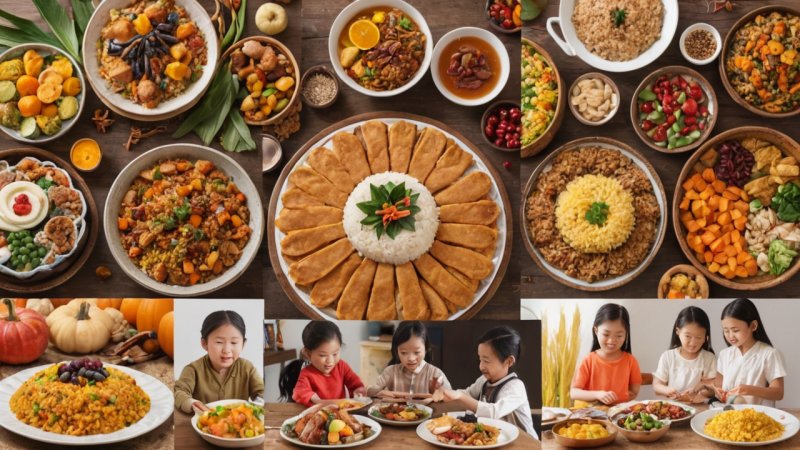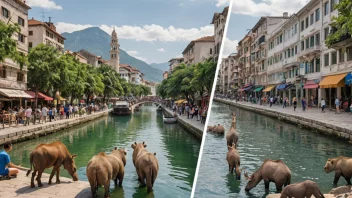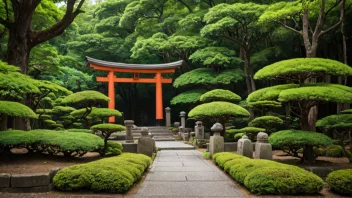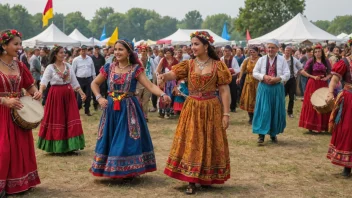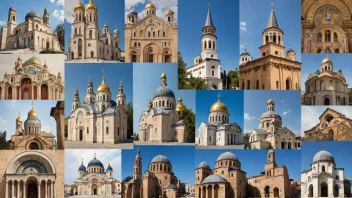Introduction
Harvest festivals are a time of gratitude and celebration across various cultures. These festivals mark the end of the growing season and the gathering of crops, bringing communities together to honor their hard work and the bounty of the earth. In this article, you will learn about different unique traditions associated with harvest festivals in various cultures, providing you with insights into how these celebrations reflect the values and history of the people who observe them.
Step 1: Understanding the Significance of Harvest Festivals
Before delving into the specific traditions, it's essential to understand why these festivals are so significant. Harvest festivals serve several purposes:
- Gratitude: They express thankfulness for a successful harvest.
- Community Bonding: They foster a sense of community and shared purpose.
- Cultural Heritage: They preserve cultural traditions and history.
- Rituals and Customs: They often include rituals that honor deities or nature.
Step 2: Exploring Harvest Traditions Around the World
Harvest traditions differ significantly from one culture to another. Here are a few notable examples:
1. Thanksgiving in the United States
This widely celebrated holiday takes place on the fourth Thursday of November. It originated from a harvest celebration in 1621, where Pilgrims and Native Americans came together. Today, families gather for a feast that typically includes turkey, stuffing, and pumpkin pie.
2. Chuseok in South Korea
Chuseok, also known as Korean Thanksgiving Day, is celebrated in autumn. Families come together to honor their ancestors, prepare traditional foods such as songpyeon (rice cakes), and visit their ancestral homes. It is a time for family reunions and expressing gratitude for the year’s harvest.
3. Sukkot in Israel
This week-long Jewish holiday celebrates the harvest and commemorates the Israelites' journey in the desert. Families build temporary structures called sukkahs, where they eat meals and sometimes sleep. The festival includes prayers and festivities that emphasize gratitude for the harvest.
4. Pongal in India
Pongal is a four-day harvest festival celebrated mainly in Tamil Nadu. It is named after the dish made from newly harvested rice. The festival includes cooking Pongal, decorating homes, and expressing gratitude to the sun god, farmers, and cattle.
5. Oschter Mande in Germany
This tradition takes place around the time of the harvest in the fall. Children dress up as “Oschter Mande” (Easter Men) and go door-to-door, singing songs in exchange for treats. The celebration includes food, music, and community gatherings.
Step 3: Participating in Local Harvest Festivals
Whether you’re traveling or living in a community that celebrates harvest festivals, participating can provide a rich cultural experience. Here are some tips:
- Research Local Festivals: Check local calendars for harvest festivals happening in your area.
- Engage with the Community: Attend events and talk to locals to learn about the significance of their traditions.
- Try Traditional Foods: Sample local delicacies that are part of the harvest celebration.
- Participate in Activities: Join in on games, dances, or rituals to immerse yourself in the culture.
- Document Your Experience: Take notes or photos to remember the unique aspects of the festival.
Step 4: Reflecting on the Importance of Gratitude
Harvest festivals remind us of the importance of gratitude and community. Reflect on how these values resonate in your life and how you can incorporate gratitude into your daily routine. Consider starting your own traditions or participating in local events to celebrate the harvest season.
Conclusion
In summary, harvest festivals are rich in tradition and significance across different cultures. By understanding the unique customs and practices associated with these celebrations, you can gain a deeper appreciation of the values they represent. Whether it's through participating in local events or simply reflecting on the importance of gratitude, embracing the spirit of harvest festivals can enhance your travel experiences and enrich your connection to the world around you.
